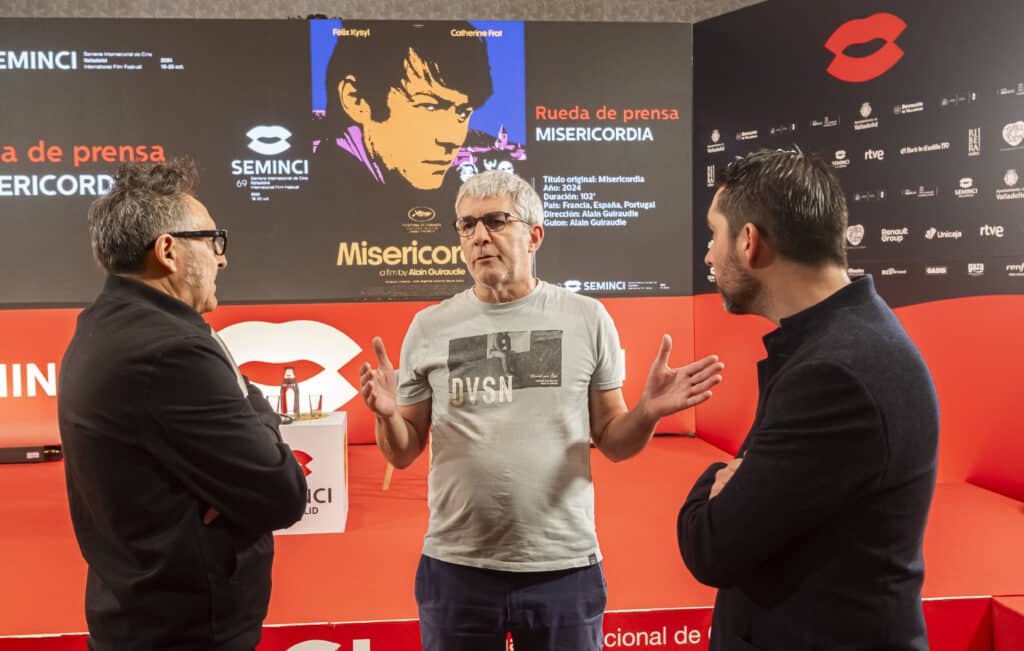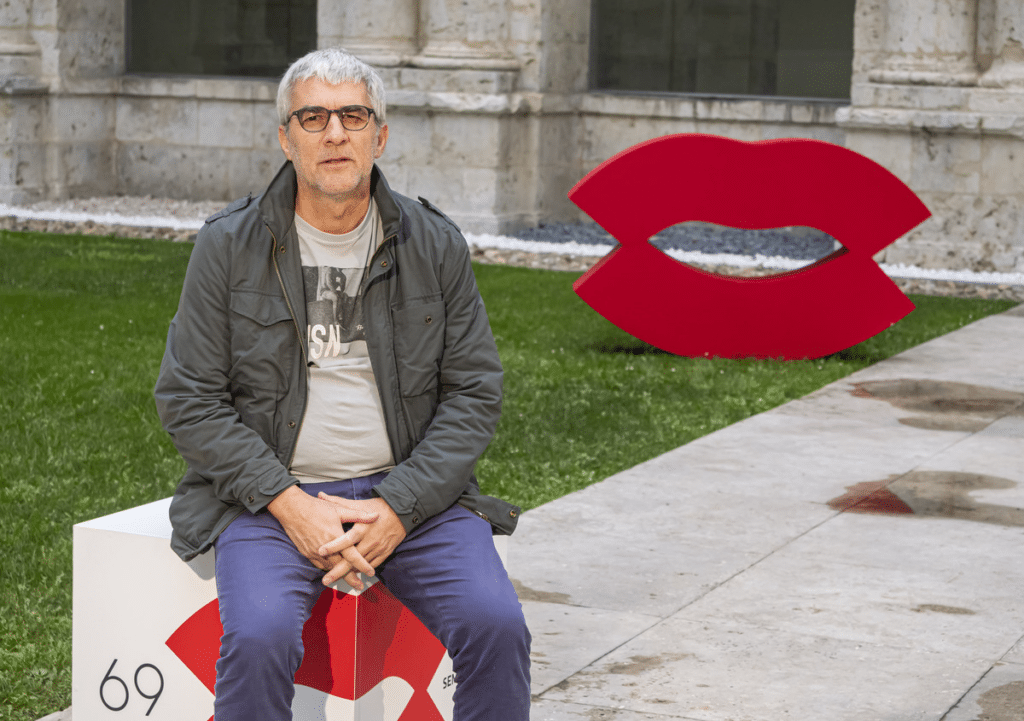French director Alain Guiraudie revisits the French region of Occitania in Misericordia, a film presented today as part of the Official Section of the 69th edition of the Valladolid International Film Festival (SEMINCI). A rural thriller about the family, the past and established morals, with a large dose of black humour and anti-clerical irreverence, geographically linked to the director’s previous works such as The Stranger by the Lake (2013) and The King of Escape (2009).

Misericordia adapts part of the novel Rabalaïre, published by Guiraudie himself in 2021, a relationship that is not new for the director. He has acknowledged that the writing of his films is sometimes based on literature and vice versa, but that the result differs: ‘When I write a novel, I include many digressions, a narrator who is always asking himself questions, questioning what he is doing, doubting enormously, etc. On the other hand, working on a film is more about taking things away and being concise, because you don’t have that space for the doubts of the narrator and their thinking. The processes are really the opposite.
Desire is one of the themes that can be sensed in the film, and how it moves the characters and triggers conflicts, as if something invisible were circulating among all the inhabitants of the village: ‘I filmed each protagonist as if another character were looking at him, that’s why there are also many close-ups. If the camera desires at the same time as the character, you have to film as if you were looking at someone you desire, but also as if you were looking at someone you also fear. I have the impression that in human relationships there is always a bit of both, a tension between desire and fear’.

The representation of desire flows through much of his filmography: ‘Mystery is the great driving force in a film, and desire is the great mystery of life. I structure my films around that because it seems to me that it gives impetus. I look for what holds me in my films and I think it will have the same effect on the viewer.
Delving deeper into the subject, regarding the representation of sex in cinema and the problems of filming it, Guiraudie believes that sex is often seen in very rushed scenes, which give him the impression that the actors are left to their own devices. ‘For me, the correct representation of sex in a film is very important, with a montage in linear time, without ellipsis and leaving the sexual organs out of field. It is essential to maintain the duration and the value of the wide shot, seeing the actors as a whole and avoiding this abuse of close-ups’.

Unlike other directors, who write a script with a performer in mind, Guiraudie gives an age and appearance range to his casting director and, once the actor is chosen, builds the character from the choice. On Misericordia, he worked on the character’s ambiguity and his ability to show different feelings with the actor Félix Kysyl during the writing of the script. Regarding his work with Catherine Frot (Madame Marguerite, The Dinner Game), an actress with a long career in France, he acknowledged that, at first, he was worried that she would possess the character so much that she would cease to be his, but they finally understood how to work together.
